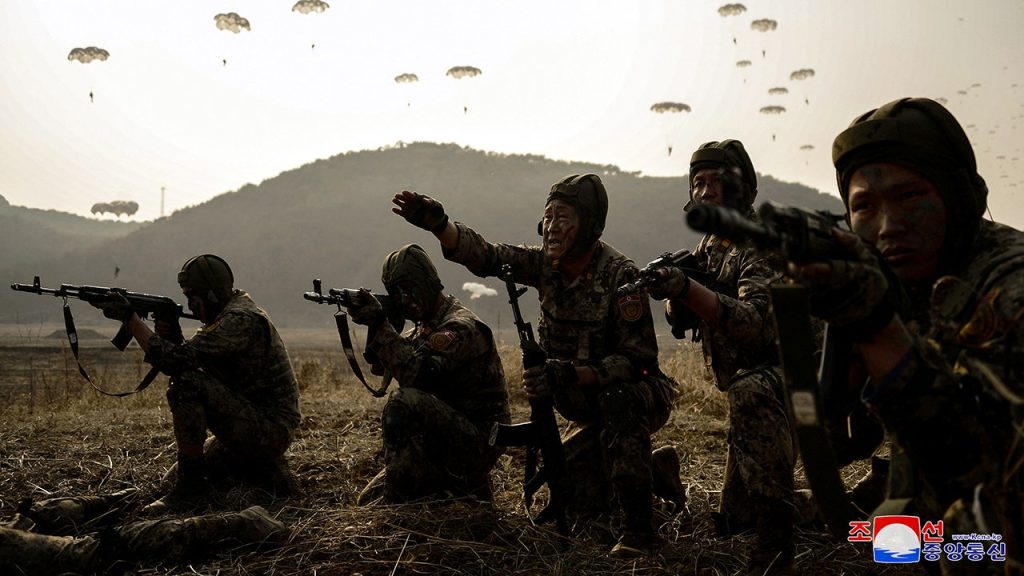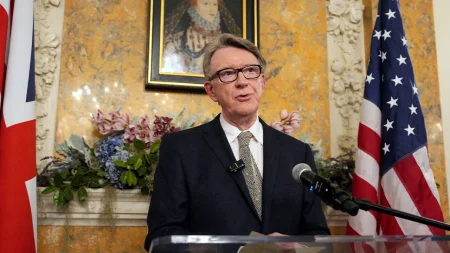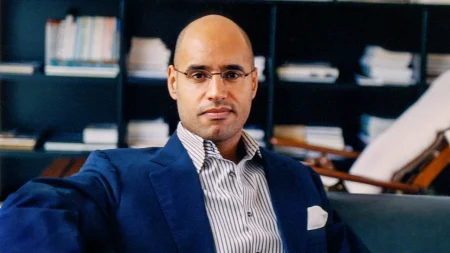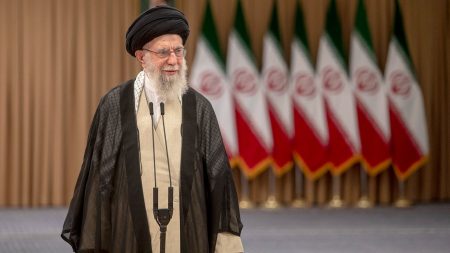The ongoing conflict between Russia and Ukraine has taken a grim turn with the reported involvement of North Korean soldiers and their drastic measures to evade capture, including suicide. Recent reports indicate that North Korean troops fighting alongside Russian forces in the Kursk region are resorting to self-inflicted fatalities to avoid being taken prisoner by Ukrainian forces. Following a recent battle, Ukrainian special forces discovered the bodies of over a dozen North Korean soldiers scattered across the snowy terrain. One surviving soldier, upon being discovered, detonated a grenade, taking his own life without harming the Ukrainian troops.
This incident follows Ukrainian President Volodymyr Zelenskyy’s announcement that Ukrainian forces had captured two North Korean prisoners of war, marking the first confirmed instance of North Korean soldiers being taken captive in the conflict. Zelenskyy highlighted the difficulty of the capture and accused Russian forces of executing wounded North Korean soldiers to prevent their capture by Ukrainian forces. This allegation raises serious concerns about the treatment of North Korean soldiers by their Russian allies and the lengths to which they are willing to go to conceal their involvement.
Ukraine has consistently asserted that Russia has provided North Korean troops with Russian military identification as a tactic to disguise the presence of foreign combatants supporting Moscow’s war effort. Despite Russia’s attempts at concealment, Western nations, including the United States, have long confirmed the deployment of North Korean troops to bolster Russia’s ranks. Estimates suggest that as many as 12,000 North Korean soldiers have been deployed to Russia, with the majority, approximately 11,000, stationed in the Kursk region to counter Ukrainian advances.
The involvement of North Korean soldiers in the conflict has resulted in significant casualties. Both President Zelenskyy and South Korean intelligence sources report that approximately 3,000 North Korean troops have been killed or injured since their deployment to Kursk in mid-November. This significant loss of life underscores the intensity of the fighting in the region and the precarious position of the North Korean soldiers. President Zelenskyy shared a video showcasing the captured North Korean soldiers receiving medical treatment and being questioned about their understanding of the conflict. One of the soldiers claimed ignorance of their mission’s true nature, believing they were participating in training exercises rather than engaging in active combat against Ukraine. His account describes witnessing the deaths of fellow North Korean soldiers before seeking refuge in a dugout for two days until his eventual capture.
Western intelligence assessments have repeatedly highlighted the unpreparedness of North Korean troops for the challenging conditions and intensity of the war in Ukraine. Zelenskyy expressed confidence in capturing more North Korean soldiers, stating it was “only a matter of time.” He further declared Ukraine’s willingness to return captured North Korean soldiers to Kim Jong Un in exchange for Ukrainian prisoners of war held in Russia. The Ukrainian president also offered alternative options for those North Korean soldiers who choose not to return to their homeland, suggesting potential asylum or resettlement opportunities.
The deployment of North Korean soldiers to Ukraine raises complex geopolitical questions about the motivations and implications of Pyongyang’s involvement. While Russia seeks to bolster its depleted forces, North Korea’s motivations likely involve financial incentives and potential military technology transfers. The soldiers’ apparent lack of preparedness and the reported practice of executing wounded troops raise significant concerns about their treatment and the ethical implications of their deployment. The situation also highlights the ongoing human cost of the conflict, extending beyond Ukrainian and Russian casualties to include foreign combatants drawn into the war. The international community continues to monitor the situation closely, with growing concerns about the escalating nature of the conflict and the involvement of external actors.















